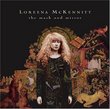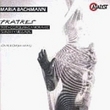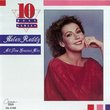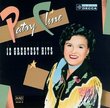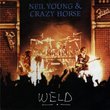| All Artists: Bear McCreary, Richard Gibbs, Brendan McCreary, Caitanya Riggan, Daniel McGrew, Ken Stacey, Lillis Ó Laoire, Melanie Henley Heyn, Michael Now, Raya Yarbrough Title: Battlestar Galactica: Season One Members Wishing: 2 Total Copies: 0 Label: La-La Land Records Original Release Date: 1/14/2005 Re-Release Date: 6/21/2005 Album Type: Soundtrack Genre: Soundtracks Style: Number of Discs: 1 SwapaCD Credits: 1 UPC: 826924103227 |
Search - Bear McCreary, Richard Gibbs, Brendan McCreary :: Battlestar Galactica: Season One
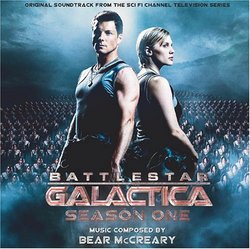 | Bear McCreary, Richard Gibbs, Brendan McCreary Battlestar Galactica: Season One Genre: Soundtracks
Battlestar Galactica Season One Soundtrack. Presenting the original soundtrack from the first season of Sci Fi Channel's critically acclaimed, top-rated television series starring Edward James Olmos, Mary McDonnell, James ... more » |
Larger Image |
CD DetailsSynopsis
Album Description Battlestar Galactica Season One Soundtrack. Presenting the original soundtrack from the first season of Sci Fi Channel's critically acclaimed, top-rated television series starring Edward James Olmos, Mary McDonnell, James Callis, Tricia Helfer and Katee Sackhoff. Composer Bear McCreary's dynamic score ingeniously melds orchestra, vocals and synth into an emotional experience that ranges from full-throttle action to soul-stirring drama. Packed with more than 78 minutes of music, this is a comprehensive collection of the very best musical moments from this amazing sci-fi drama's first season. Features both U.S. and U.K. main title themes and includes exclusive liner notes. Similarly Requested CDs
|
CD ReviewsGenre-rich Sci-fi score. Yen Nguyen | Bethesda, MD | 07/05/2005 (5 out of 5 stars) "Bear McCreary took over as the main composer for Battlestar Galactica after Richard Gibbs left to continue working on movie scores. With McCreary writing all of the main music for the first season, I found the music even more rich then that of the miniseries that preceded it. Not only is the soundtrack rich with low-synth percussion action tracks, but it also employs such genres as opera, muzak, and string orchestral to convey the feeling of a scene. The use of drums in this soundtrack trumps their use in the miniseries with even catchier drum rolls. Most notably, the string orchestral pieces Passacaglia and the Shape of Things to Come are definitely the best pieces on this non-generic soundtrack. Even with an orchestra at his disposal, McCreary did not write any bombastic score and instead wrote beautiful soothing melodies that ironically contrast the scenes in which they are placed, making those sequences all the more memorable and enticing. Battlestar Galactica is successfully breaking free from the shackles of the modern sci-fi genre, and the music which strays so far from the orthodox helps it do so." Haunting, Often Tribal-like Music that Effectively Sets the M. Hart | USA | 09/25/2005 (5 out of 5 stars) "When the Sci-Fi Channel first announced back in 2003 that it was producing a miniseries version of the original 1978 TV series "Battlestar Galactica", I had many doubts about how successful it would be. However, my doubts were quickly washed away as the miniseries proved to be compelling, engaging, extremely realistic, emotional and well acted. It also had superb special effects, but a sometimes overlooked aspect is a soundtrack, which in the case of the miniseries proved to be very powerful in setting its dark and tense tone with its haunting, tribal-like drums and other percussion instruments, as well as a very melancholy score with vocals. Under the superb direction of Michael Rymer, the men who composed this original emotionally charged soundtrack were Richard Gibbs, Bear McCreary and Kevin Kliesch (who was not credited). Due to the huge success of the 2003 miniseries, the Sci-Fi Channel decided to produce a TV series based upon it. The first season of the new "Battlestar Galactica" TV series first aired in January, 2005 with 13 episodes and showed itself to be just as exciting and well made as the miniseries thanks in large part to the same casting as the miniseries and the continuation of the same haunting soundtrack under Bear McCreary. (Richard Gibbs composed music for the second and third episodes of the first season of "Battlestar Galactica", but moved on to continue composing music for films for both the big screen and made-for-TV.) Bear McCreary's continued musical compositions have been just as dark, haunting, tribal-like and emotionally powerful as the 2003 miniseries and has contributed directly to make this new, updated version of "Battlestar Galactica" one of the most talked about and successful sci-fi TV series in the past year. The first season prologue initially sets the dark tone, but the main title with its military-style percussion in the background and emotionally sad melody intensifies the feeling of just how desperate the small number of surviving humans is in their flight into deep space away from the Cylons. This pressing need for survival is also felt by Helo's predicament on the surface of Caprica where he believes he is alone with Boomer, and the three musical scores used are quite effective. Probably my most favorite piece is the symphonic "The Shape Of Things To Come", which is used when Six is showing Baltar secrets on the surface of Kobol in the final first season episode. It is a curious mix of a cheerful future, but with dark undertones beneath. I applaud all those responsible for creating such a wonderful and darkly realistic sci-fi TV series as "Battlestar Galactica". It's success would not have been possible without an incredible soundtrack to help capture the imaginations of the viewers. Hence, I rate the "Battlestar Galactica: Season One Soundtrack" with a resounding 5 out of 5 stars. As a side note, the soundtrack for the show's second season has evolved and is also equally appropriate for the events that occur there." To [almost] quote The Simpsons' Comic Book Guy: Kristina Hoffman | San Rafael, California | 08/16/2005 (5 out of 5 stars) "Best. TV Soundtrack. Ever.
This comment only has one caveat, which is to remind everyone that the soundtrack for the tragically short-lived Firefly was never released. Had it been, it would have surely been in the running, if not tied for first place. But, excluding that: this is the most diverse, most brilliant, most thrilling soundtrack I've listened to. It brings together Eastern themes (like taiko drums -- one of the soundtrack's main instruments), Celtic influence, classical strings, and modern synth...even opera. Those of us who initially watched the first season during its run in the UK on SkyOne will recognize the last track as what I like to call the Real Theme. The one SciFi used during the first season was actually just a piece of score from the episode Act of Contrition, featured in the track 'Two Funerals'. The Real Theme is far superior, and luckily SciFi has chosen to use it for its second season. Prologue is the little interlude used to set up the show's mytharc at the beginning of each episodes. "The Cylons were created by Man..." Honestly, this track gives me the shivers. It's exciting, it hints at the grandeur and the epic nature of the series -- it's just plain thrilling. Then we have the Main Title, which I've spoken of. Lame. The end. Helo's Chase is just another wonderful example of the melting pot of instruments and influences. Tibetan chanting, computerized synth-y noises, and the taiko drums. The Olympic Carrier is another drum heavy piece, with a buzzing element which serves to perfectly, musically represent the Cylons. Mid-through the piece, an Arabian-styled woodwind breaks through. Helo Rescued is short, almost New Age-y, and definitely reminiscent of Christophe Beck's score for BtVS' Restless. This is a familiar influence throughout the soundtrack. A Good Lighter. I'm not sure why they stick this in at the 6th track, as the rest of the soundtrack seems to run chronologically along with the episodes, but it serves to introduce the Irish flutes and uilleann pipes that to me, represent the Adamas and the lighter Bill gives to Lee in Hand of God. Very wistful, longing, sad. We launch back into the taiko drums with The Thousandth Landing, and again we're pulled along by the Arabian minor flutes highlighted with zylls. Two Funerals is again reminiscent of Beck's score and including more of the Arabian flutes: what I think of and will now refer to as "River's flute" (a theme of the Firefly score). In the end it launches into a military drum beat, which is what became the "Main Theme" on SciFi's airing. Starbuck Takes On All Eight is a similar (read: taiko-y!) track to most of the above, this time incorporating what seems to be Native American chanting and a string background. More the Arabian flutes too. Carrying on. Forgiven. A sad song, slightly reprising the theme from Two Funerals (makes sense, given that it was part of a continuing storyline), but this time with vaguely Enyaesque vocals and strings. River's flute makes an appearance. The Card Game is more modern, with trip-hoppy beats, bongos, and River's flute creating an eerie mood. Starbuck On The Red Moon. Taiko time! River's flute verges on sounding almost uilleann; the song has a diverse, shifting time signature and is very beat driven. More Enyaesque vocals. Helo In The Warehouse is similar to the other Helo tracks [one of the things I love about McCreary's score is that he very clearly creates different atmospheres, different places with his score] when it starts out, with the synth and the quiet vastness, but then launches into an explosion of taikos in the end. Baltar Speaks With Adama. River's flute is soft and subtle this time, backed by synthy strings, until the end brings in some more, wait for it, taiko drums. Two Boomers reflects the Helo themes, bringing in some more strings and what sounds like a saxophone. Then it launches into a very modern, Matrix-y, guitar techno chase, and fades out. Battlestar Operatica...in a word? Hysterical. It's written as a traditional Italian opera, but take a look at the lyrics: "Woe upon your Cylon heart/There's a toaster in your head/And it wears high heels/Number Six calls to you/The Cylon Detector beckons/Your girlfriend is a toaster." It brings in shades of a traditonal string composition that I can't for the life of me remember the name of, although it's been used endlessly in films. The Dinner Party is an absolute perfect background for the oddest dinner party you'll see from Tigh Me Up, Tigh Me Down [on this soundtrack referred to as Secrets and Lies]. The scene reminds me of a French farce, a bawdy Restoration comedy, and the music fits right in with that. Battlestar Muzaktica is from a scene in Colonial Day I've apparently forgotten. It's...muzak. Don't listen to this track if anyone's listening in, because only you'll get the joke and they'll be left wondering why you're listening to muzak. Baltar Panics! This means taikos! Irish flutes played in an Arabian style! [There's got to be a word for that.] Ends softly with River's flute and synth strings. Boomer Flees. Shades of Helo themes. Again, breaking into the taikos that get complemented by some epic sounding vocals. Flesh And Bone is eerie, though it sounds very impressive with the taikos, and fades into River's flute. There's something wrong, and you can hear it. This time McCreary brings in what sounds like a Spanish acoustic guitar, but at times dissonant. The uilleann pipe goes all Arabian on us. It ends with a synthy noise heard in the Helo scenes. Battle On The Asteroid is one of my absolute favourites. Starts with a Lord-of-the-Rings-y tune by River's flute, and cymbals build up to the taikos. It breaks, starts again, builds up, River's flute comes in, and then, the smartest idea McCreary ever had: contrasting the taikos with bagpipes. Given the vast military scope of this scene, it's pure genius. We get some computery noises that seem to represent the Cylon centurions. River's flute comes back Arabian again, and then the bagpipes counter the taikos some more. Some of what may be tablas pop up, then some traditional strings [reminiscent of Klaus Badelt's Pirates of the Caribbean score], then the bagpipes again, then an Irish flute. There's a lull, that is brought back again with some fast tablas that break into the bagpipes again and quiet down for River's flute, which is sounding very Irish now. Everything goes Arabian again, and fades out until a taiko explosion ends it. One of my friends described Wander My Friends as "Titanic-core" which: heh. But it's the uillean pipes returning with the theme from A Good Lighter, and this time some Gaelic vocals that turn into a resounding chorus of celebration. It's a perfect fit for the champagne-popping joy of Lee's victory. In English: "Wander my friends, wander with me/Like the mist on the green mountain, moving eternally..." We come in on the lynchpin of the soundtrack: Passacaglia. Cited by most fans as their favourite track, this is the genius string piece placed against the montage of self-destruction that began Kobol's Last Gleaming, Part one. It's epic and paced, foreboding and wondrous, self-regulating and bursting at the seams with tension. If anything, listen to this song. This song killed my iTunes. Kobol's Last Gleaming reminds me of a mixture of Howard Shore's LotR score and Christophe Beck's Restless score. Opens with some chanting prophetic Latin lyrics that blend with River's flute. This is the perfect track for the discovery of the planet Kobol; it's a feeling of awe and ancient history mixed with new danger. Destiny is similar to Kobol's Last Gleaming, only this time using an Arabian string instrument I can't think of [not a sitar?], and bringing in the taikos for one last glorious procession. There's more of a different Arabian string instrument, more rhythmic than the first, that fades into tabla drums, which then brings back the taikos and River's flute...and it all ends with an explosion of strings. The Shape Of Things To Come. This is Passacaglia gone crazy. It's technically just a faster version of Passacaglia, but the urgency and the revelation in it would make me [were the track longer] declare it my favourite. This track is forever tied with the image of Six leading Gaius into the ruins on Kobol which become a glorious palace. It's epic. Epic times ten. Bloodshed. If you haven't seen the end of Kobol's Last Gleaming Part Two, I won't spoil it. But this track (repeating the Latin chanting vocals from KLG) is a perfect shock and requiem in strings and silence. Definite Christophe Beck influences. The end is a perfect match for the shocking cut to the black, to the "To Be Continued..." Re-Cap. The synthy beats played over the "Previously on Battlestar Galactica..." Very anticipatory, like the Prologue. Rightfully so. Main Theme (UK Version): I can't really put into words how much this is the perfect theme for the show. The vocals are part of the Gayatri Mantra, an ancient Hindu mantra. And then! The shout, launching into the TAIKOS, which accelerate and then explode. Bear McCreary is master of taiko usage. If you listen to this track with good subwoofers...it's like nothing else you've ever heard. And that is my rambly --possibly inaccurate in the naming of certain instruments and styles-- review." |

 Track Listings (30) - Disc #1
Track Listings (30) - Disc #1